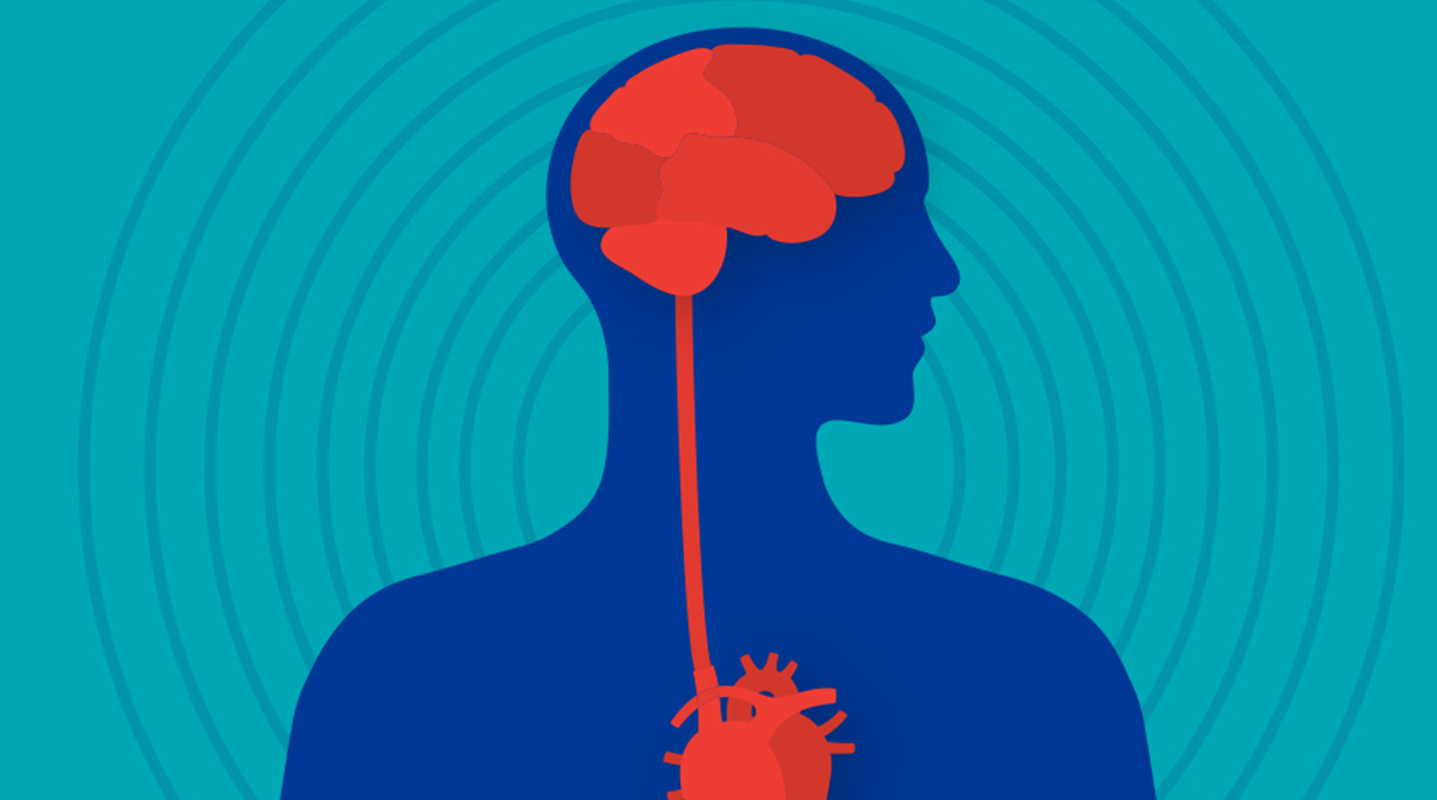AFib and Stroke Connection
May 11, 2023

Some people develop an irregular heartbeat or arrhythmia after having a stroke. But did you know it’s usually the other way around? Arrhythmias are often the cause of strokes.
Arrhythmias occur when electrical signals in the heart get off track. The heart is a muscular pump, and electrical signals make the muscles contract (squeeze). The rhythmic contractions push blood out to the rest of the body.
But when you have an arrhythmia, the contractions are inconsistent. Depending on the arrhythmia type, your heart temporarily or constantly beats too fast, too slow or out of rhythm. The most common kind of irregular heartbeat is atrial fibrillation (AFib). It causes the most arrhythmia-triggered strokes.
Atrial Fibrillation and Stroke
When you have AFib, you’re four to six times more likely to have a stroke. And the risk increases as you get older.
“Even though people are often unaware they have AFib, it’s a condition you have to take seriously. Like high blood pressure, AFib is often a silent killer. You might not have any symptoms until you have a stroke,” says Daniel Benhayon Lanes, MD, an electrophysiologist (EP) at Memorial Cardiac and Vascular Institute.
How does AFib cause stroke?
AFib causes heart contractions that are too fast and weak. Instead of a squeeze, it’s more of a flutter. As a result, some of the blood remains in the heart. When blood pools, clots can develop. A stroke occurs when:
- A clot in the heart breaks free and circulates through blood vessels.
- The clot lodges in a small artery in the brain.
- The clot blocks blood flow to the brain.
“Many people don’t find out they have AFib until after they’ve had a stroke,” says Dr. Benhayon. “Monitoring the heartbeat is crucial in those situations to prevent a second event from happening. Because we know that someone who has a stroke has about a 20% chance of having a second one in the next four years.”
How to Prevent Arrhythmia-Triggered Strokes
One of the top goals of AFib treatment is reducing your stroke risk. The two ways healthcare providers do that are by monitoring the condition and providing preventive medicine.
Monitoring
The test that often leads to an AFib diagnosis is an electrocardiogram (EKG), which tracks your heart’s electrical activity. Providers can also prescribe a portable EKG to monitor your heart. You wear a device, like a Holter or event monitor for a few days to several weeks. For long-term monitoring, your provider may recommend an implantable loop recorder. It’s a tiny EKG on a small chip that your provider inserts under your skin above your chest. An implantable loop recorder detects AFib episodes, even if you don’t feel them.
The information from the recorder is sent to a remote patient monitoring center.
“At Memorial, we follow over 2,500 patients with implantable devices,” says Dr. Benhayon. “We regularly check the data and distribute information to the right teams at the right time. We want to take action — like changing a medication or deciding to do an intervention — to prevent life-threatening arrhythmia complications like stroke.”
Preventive Medicine
To reduce the risk of stroke due to atrial fibrillation, providers often prescribe blood thinners, medications that interfere with clotting. But according to electrophysiologist Demetrio Castillo, MD, not everybody needs a blood thinner.
“For people with AFib, we use a point system to figure out how likely they are to have a stroke,” says Dr. Castillo. “It takes into account factors like whether you have high blood pressure, diabetes, heart failure or other conditions that increase stroke risk. Age is also a strong indicator — the older you are, the higher the chance of stroke.”
For people with AFib, taking a blood thinner decreases the chance of stroke by at least 50%. But you have to weigh your stroke risk against the side effects and risks of taking a blood thinner, which include:
- Excessive bleeding
- Nausea
- Diarrhea
Your provider may also recommend other medications and treatments to restore your heart’s rhythm, such as a minimally invasive procedure (cardiac ablation). These treatments may make your heart more effective at pumping blood.
“AFib treatment is highly personalized, whether we’re looking at reducing symptoms or lowering stroke risk. It has to take into account your symptoms, health goals and what you feel comfortable doing,” says Dr. Castillo.
Schedule an Appointment for Heart and Vascular Services
Learn more about heart and vascular services at Memorial Cardiac and Vascular Institute. To schedule an appointment with a cardiologist, electrophysiologist or vascular specialist at Memorial, call 855-400-6284.
